Sitio Conte, Panama

Located in central Panama, the Rio Grande de Coclé floods during the rainy season. In the early 20th century, the Conte family noticed that the shifting course of the river was exposing ancient burials on the river’s edge. In 1940, the Penn Museum excavated the now-famous Sitio Conte (Conte Site) and found archaeological evidence of a large cemetery including an impressive burial of a chief that had been buried with lots of gold and numerous other individuals. The evidence, although dating to the late 1st millennium CE, seemed to corroborate Spanish accounts of events and rituals surrounding the burial of powerful chiefs for the Quevi culture in the late 16th century CE.
- Object[119]
- no[119]
- american[119]
- body sherd[1]
- carafe[89]
- effigy vessel[5]
- jar[9]
- neck sherd[119]
- rim sherd[4]
- spouted jar[1]
- vessel[7]
- panama[119]
- sitio conte[119]
- sitio conte[119]
- cocle[119]
- central american[119]
- burial 11[44]
- burial 11, sq. 2[1]
- burial 12[9]
- burial 12a[2]
- burial 12b[4]
- burial 12c[1]
- burial 12d[8]
- burial 12e[1]
- burial 12f[4]
- burial 12g[3]
- burial 13[1]
- burial 14[4]
- burial 15[2]
- burial 16[1]
- burial 17a[2]
- burial 17b[1]
- burial 18[2]
- burial 18?[1]
- burial 19[6]
- burial 23[3]
- burial 24[1]
- burial 25[2]
- west of b-7, uner and around stone i[1]
- human[2]
- human face[3]
- ceramic[119]
- general reference[119]
1 - 30 of 119 Records
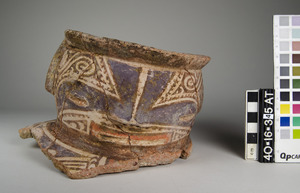
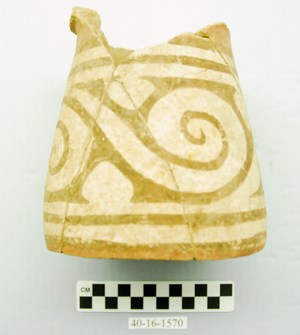
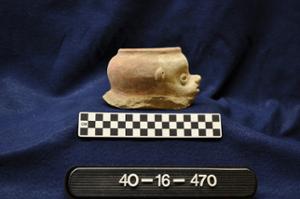
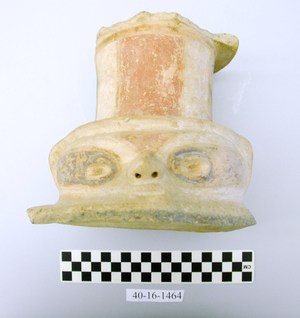
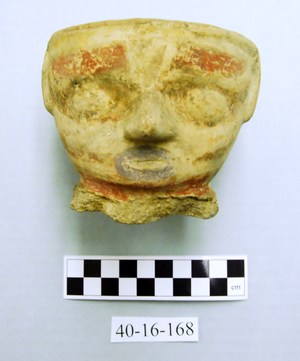
1 - 30 of 119 Records


